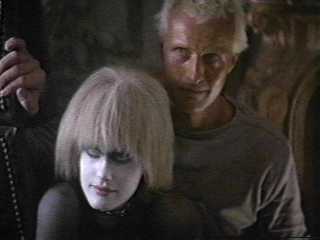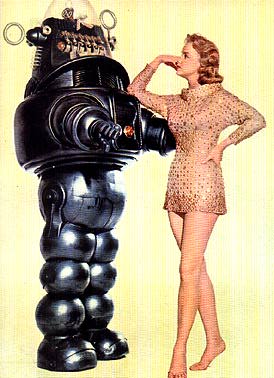Russell Blackford—a few of
my favourite things
|
Miscellaneous favourites
1. Cats. Cats in general—both the house
variety and the big cats… the lions, tigers, leopards,
jaguars, cheetahs, etc., etc. I relate to them all.
2. Water in all its forms: lakes, the ocean,
waterfalls, the fjords, etc, etc.
3. This miracle, the Internet, which enables me
to keep in touch with friends and colleagues all over the world.
4. Travel generally. It's wonderful seeing
different places and cultures.
5. Finishing the final draft of anything I'm
writing—for whatever purpose and in whatever
form—whether it's a story, an article, a piece of legal
advice, or anything at all—and knowing it's good.
6. Sunshine. It's amazing how the sunshine
cheers me up and the clouds make me gloomy (hey, I don't mind a
good rainstorm, though, or driving on the road in the pitch-dark
night).
7. That reminds me… a good fight in a
tolerably decent cause, as Bertrand Russell once said.
8. I'm not very sporty, alas, but my sporting
favourites over the years should get a mention—from Muhammad
Ali to Amelie Mauresmo and Marat Safin (the coolest tennis
players currently on tour).
|

Felix (born August 2005):
The new cat in my life. |
9. McDonalds—especially the fries. This is
my secret vice. My less secret vices include Indian, Japanese and
Thai food.
10. Books, of course… I've saved this to
last, but not because it's least. It should be a whole new set of
lists by itself. It probably will be before I'm through with this
site. Hmmm, I need separate lists for science fiction, poetry,
classical literature, philosophy, and on and on… I'm just a
little bookworm. (Then again, don't even start me on movies!)
Some favourite books (poetry, fiction,
and criticism)
1. W.B. Yeats. Collected Poems.
2. Robert A. Heinlein. Stranger in a Strange Land.
A little dated, perhaps, but still a refreshing satire with some
of the most engaging characters in science fiction. Practically
my bible when I was younger, and some of my best friendships are
associated with this book. My all-time sentimental favourite
novel.
3. Dostoyevsky. The Brothers Karamazov. Maybe
the best novel ever written, despite its underlying religious
conservativism. Earns its vision like no other novel.
4. Donna Tart. The Secret History. Clever
update of Dostoyevskian themes.
5. E.M. Forster. Passage to India. Simply one
of the sanest, yet most gripping, novels you'll find.
6. Tolkien. The Lord of the Rings. What can I
say?
7. E.R. Eddison. The Worm Ouroboros. The
great predecessor to LOTR.
8. Jean Paul Sartre. Nausea. The ultimate
existentialist novel...well, along with The Outsider
by Albert Camus. Must reads. See also "The Myth of
Sisyphus", a superb essay by Camus. These guys understood
the world they were living in.
9. William Gibson. Neuromancer. Still the
ultimate cyberpunk novel. See also the work of Bruce Sterling and
Neal Stephenson, particularly Sterling's early anthology of
cyberpunk stories, Mirrorshades.
10. Ursula Le Guin. The Left Hand of Darkness
and The Dispossessed. Serious science fiction,
the sort you can offer to your friends who don't read science
fiction.
11. Thomas Pynchon. Gravity's Rainbow. Full
of wonderful material. Worth persevering with despite its
apparent formlessness.
12. Samuel R. Delany. Driftglass/Starshards.
Anything by Delany is worth getting your hands on, but this huge
collection of his shorter fiction is superb. Its introduction has
some of the best material I've read about writing fiction.
13. John Barth. The Sot-Weed Factor.
Actually, any of Barth's earlier books are well worth reading:
exuberant, intellectual romps. I'd add in The End of the
Road and Giles Goat-Boy.
14. Kurt Vonnegut. Almost anything by this wise, funny man
could be listed here. But especially The Sirens of Titan,
Cat's Cradle, Slaughterhouse 5,
Breakfast of Champions, Galapagos.
15. Kim Stanley Robinson. The Mars Trilogy.
16. Nancy Kress. Beggars in Spain. This book
and its sequels have some of the most sophisticated portrayals I
know of the problems that confront us in dealing with the
technologies of the future.
17. George R.R. Martin and others. Wild Cards.
Superb, not-too-serious, sf/superhero series. See my entry in the
Clute/Nicholls Encyclopedia of Science Fiction.
18. Greg Egan. Distress. Perhaps Egan's best
novel. See also his short fiction collected in Axiomatic
and Luminous.
19. H.G. Wells. The Science Fiction.
Available in a giant two-volume edition. Indispensable.
20. Northrop Frye. Anatomy of Criticism.
Though outdated in some ways, open to challenge on some points,
and inaccessible at times, this is still the best overview of how
literature works. A formidable work of literary criitcism and
theory.
Some honorable mentions...
David Hartwell and Kathryn Cramer (eds.). The Ascent
of Wonder and The Hard SF Renaissance.
These people are friends, but that's not why these books are
here. They have to go on the shelf as essential reference,
collecting much of the most important hard science fiction, from
the beginning to the age of Egan, Kress, and Gregory Benford.
Jack Dann and Janeen Webb (eds.). Dreaming Down-Under.
Okay, these people are also friends, but this is a minor classic
already, a big anthology of Australian sf and fantasy with many
of the significant players included. Disclaimer: contains my own
cyberpunk story "The Soldier in the Machine", also
available in the Hartwell.Broderick anthology, Centaurus.
Just some of my all-time favourite
science fiction movies (not necessarily in order).
1. Blade Runner (1982).
2. The Terminator (1984) and Terminator
2: Judgment Day (1991). The third movie is not too bad,
either. My
view of it is elsewhere on this site.
3. 2001: A Space Odyssey (1968).
4. Forbidden Planet (1956).
5. King Kong (1933).
6. Metropolis (1926).
7. The Time Machine (1960 - I love the George
Pal version; the less said about the 2002 remake the better).
8. The Empire Strikes Back (1980 - for my
money far the best of the Star Wars movies).
9. The Matrix (1999).
10. X-Men 2 (2003 - perhaps the best
superhero movie ever made).
Favourite sf/fantasy movie
heroes/heroines and villains.
1. Magneto (Sir Ian McKellen)
and the his stunningly competent and sexy offsider Mystique
(Rebecca Romijn-Stamos) in X-Men
and X-Men 2. You've gotta love these two
villains.
2. Darth
Vader (the body of Davis Prowse and the voice of
James Earl Jones) in the Star Wars movies (the
villains capture our imaginations don't they? ... I seem to be
putting them first).
3. Roy Batty (Rutger Hauer) and Pris (Daryl Hannah) in Blade
Runner.
Roy Batty and Pris 
4. Trinity (Carrie Ann Moss) in the Matrix
movies. Now that's my idea of a cyberpunk heroine.
5. Morpheus (Lawrence Fishburn), likewise in the Matrix
movies. And that's how a cyberpunk hero should be. Sorry, Neo.
5. Sarah Connor (Linda Hamilton) in Terminator 2:
Judgment Day. What more can I say?
6. Altaira (call her Alta for short) (Anne Francis) in Forbidden
Planet. She gets in simply for being so damn cute. On
the cuteness scale, the otherwise-useless Weena
(Yvette Mimieux) in the 1960 George Pal version of The
Time Machine.
Altaira with Robby the Robot 
7. The Terminator (Arnold Schwarzenegger) in all three Terminator movies, but
especially the first one. Again, what can I say?
8. The
False Maria (played in her human appearance by
Brigette Helm) in Metropolis. I also have to
give a mention to Rotwang, the movie's over-the-top mad scientist
villain.
9. King Kong (the creation of the great Willis O'Brien) in,
um, King Kong
(I'm thinking of the 1933 version, not the 1976 remake, which
is fairly slow-moving and weak imitation of the original).
10. Gandalf in The Lord of the Rings movies.
I take off my hat once more to the great Sir Ian McKellen.
Actually, Christopher Lee's Saruman is also impressive, making
something of a character whom I found relatively uninteresting in
Tolkien's original trilogy.
Some favourite philosophers and other
thinkers (serious stuff...under construction)
This list will include some of my favourite
philosophers, philosophically-ambitious scientists, bioethicists,
cultural critics, etc, with references to some of their works.
1. David Hume. His major works, notably A Treatise of
Human Nature, are breathtaking. For many purposes, the
history of philosophy starts here.
2. Galileo Galilei. The main founder of scientific
investigation as we know it today.
3. Bertrand Russell. The discipline of philosophy, as
conceived in the twentieth century and today, very largely
reflects his synthesis.
4. Friedrich Nietzsche. We are still absorbing his
significance, at least I am. Often unfairly denigrated for
supposed connections with the Nazis. But often over-sanitised by
those who don't want to admit how nutty he could be.
5. John Stuart Mill. The founder of modern liberal thought.
6. Jean Paul Sartre. Great French existentialist.
7. Robert Nozick. My most favourite libertarian philosopher,
though I disagree with much that he says (I am in favour, in a
broad way, of getting the government out of both the bedroom and
the boardroom, but the role of governments in helping the poor
never gets its due from thinkers like Nozick).
8. Daniel Dennett.
9. Richard Dawkins. Dennett and Dawkins write superbly and
rigorously about science and its implications.
10. Peter Singer. The most important philosopher to come out
of Australia. His views on bioethical issues are refreshing, and
his writing is a model of clarity and organisation, though I do
not accept his utilitarian assumptions. For my critique, go
here.
And some honorable mentions...
Martha Nussbaum. Extraordinarily impressive philosophical
polymath.
Bernard Williams. Always full of good sense, though sometimes
hard to follow.
Derek Parfit. His Reasons and Persons must be
the single most important philosophical work published in the
last few decades of the twentieth century.
Jean Curthoys. A dear friend, committed feminist, and author
of an excellent critique of modern feminism: Feminist
Amnesia.
Gregory Pence. One of my favourite thinkers in the area of
bioethics. His book Who's Afraid of Human Cloning?
is a must-read, since it debunks many of the more-or-less
irrationalist arguments against cloning.
John A. Robertson. An American legal scholar who is one of the
most useful thinkers in the field of bioethics.
Julian Savulescu. Important and sensible Australian
bioethicist.
Back to Home


